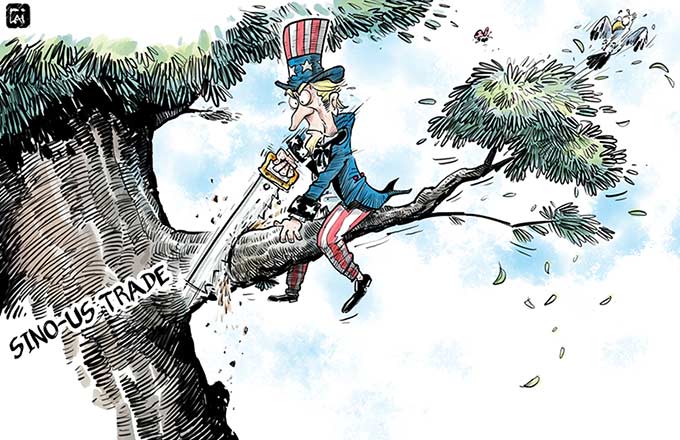Britain struggles to learn Chinese
This is not to say no progress has been made. Britain's primary schools, which typically teach children up to the age of 11, have been the main beneficiaries of government initiatives to increase the teaching of Mandarin. Yet it will take years before these measures really have an impact.
If Britain wants to take advantage of its new relationship with China, something that President Xi Jinping has hailed as a "golden era", then the country needs to get serious about equipping its students with the skills they need for the modern world. That means taking radical measures now, to ensure British employers have the skilled workers they require to do business with China.
First, the government needs to realize it cannot hope to supply Mandarin teachers to schools in the numbers that it wants, without loosening its highly restrictive visa policy and stringent standards for classroom teachers. Surely it can look abroad for Chinese teachers, in the same way China has done for English teachers.
Second, if the government really hopes to train a nation of Mandarin speakers, then it needs to make learning a foreign language compulsory, until at least the age of 16 when students take their GCSE (General Certificate of Secondary Education) exams. And the way languages are taught needs to change. Why can't the same amount of time and attention be dedicated to learning a language that the government's other key subjects get?
Third, schools should drop their attachment to teaching French. It would be untrue to say French is unimportant, it remains a language of diplomacy, but it is no longer an important business language in the same way that German still is. British education policy should reflect that.
Finally, the government needs to try to persuade the public that learning a language is vital for British students, and that the ability to speak Mandarin is now a highly-desirable skill.
However, it doesn't seem likely that Prime Minister Theresa May will take any radical steps to boost Mandarin teaching. The famously cautious May is unlikely to want to initiate any further major changes to education policy following the fraught relationship the previous coalition government had with the teaching profession. And it seems even less likely that May, who was previously a security-minded home secretary who made cutting immigration her main focus, will let large numbers of foreign teachers into the country.
The enthusiasm for gearing up the British economy for business with China that former PM David Cameron espoused is simply not as evident under May.
Yet whatever Theresa May thinks, it may well be tough economic realities that eventually nudge Britain into making the radical changes to its education system that the modern world requires.
James Skinner is a contributing editor at China Daily with an MA in International Relations. He has a particular interest in British and American politics, as well as global security issues.


















